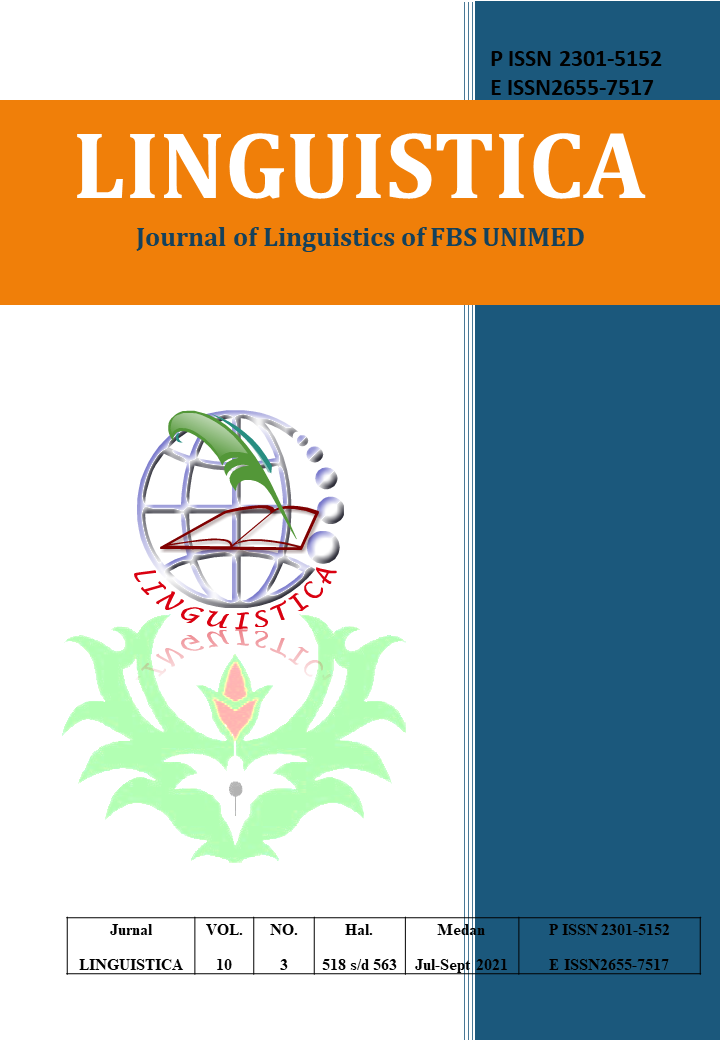AN ANALYSIS OF TABOO WORDS IN DEADPOOL MOVIE
DOI:
https://doi.org/10.24114/jalu.v10i3.28455Abstract
The research dealt with taboo words in Deapool movie. The objectives of research aimed at explaining the types of taboo words and also to figure out motives of using taboo words in Deadpool movie. The research conducted by using descriptive qualitative method. This study was different from previous researcher that found types and function of taboo words while in this study focused on types and motives of using taboo words. The data were taken from the utterances that contain taboo words by first main character in this movie. There were 82 taboo words that had been uttered in this movie. From nine types of taboo words, there were eight of them, they were Cursing 2,44 %, Profanity 3,66 %, Obscenity 40,24%, Vulgarity 6,10 %, Insults and slurs 9,76 %, Slang 12,20 %, Epithets 20,73 %, and Scatology 2,44 %. And for the motives of using taboo words, there were five from five motives of them, they were Angry or Frustration 30,48 %, Descriptive- evaluative 43,90 %, Joking 7,32 %, Surprise 14,64 %, and Sarcastic Irony Insults 3,66 %.Downloads
Published
2021-10-08
Issue
Section
Articles
License
Copyright (c) 2021 RIRIN ZEVANYA PURBA, ZAINUDDIN ZAINUDDIN, I WY DIRGEYASA

This work is licensed under a Creative Commons Attribution-ShareAlike 4.0 International License.
Authors who publish with this journal agree to the following terms:
- Authors retain copyright and grant the journal the right of first publication with the work simultaneously licensed under a Creative Commons Attribution License that allows others to share the work with an acknowledgment of the work's authorship and initial publication in this journal.
- Authors are able to enter into separate, additional contractual arrangements for the non-exclusive distribution of the journal's published version of the work (e.g., post it to an institutional repository or publish it in a book), with an acknowledgment of its initial publication in this journal.
- Authors are permitted and encouraged to post their work online (e.g., in institutional repositories or on their website) prior to and during the submission process, as it can lead to productive exchanges, as well as earlier and greater citation of published work (See The Effect of Open Access).
- This work is licensed under a Creative Commons Attribution-ShareAlike 4.0 International License.

